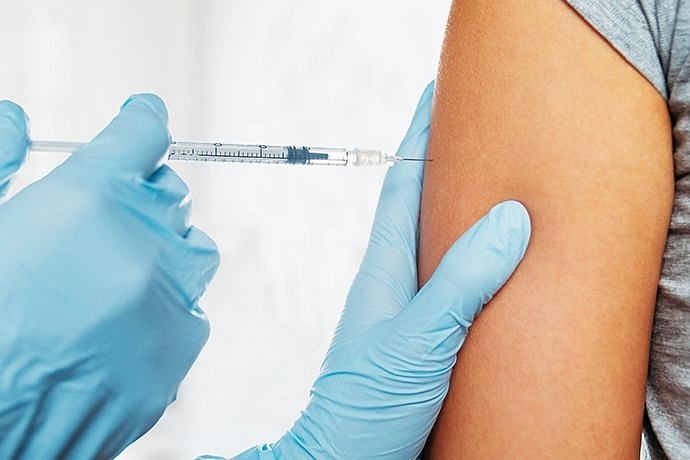Ideas
Mountain Must Come To Mohammed: Covid Jabs Must Move From Hospitals To Home, Offices
- Thus far, Covid vaccine beneficiaries have been moving to the mountain – the Indian healthcare establishment.
- It is time for the mountain to meet Mohammed at least half-way, in homes or somewhere nearby.

Vaccination drive.
A Karnataka minister, B C Patil, got his Covid vaccination done at home, and was roundly criticised by everyone for giving himself preferential treatment. But even while we criticise this VIP culture where netas and the rich put themselves above the law, there is some innate logic to the minister’s act that needs to be understood: the right place for the jab is not always a hospital. It should be closer to home. Or even offices, as many companies and banks prepare to give free shots to their employees and their families.
Anyone who has seen the kind of crowds milling around hospitals waiting for the vaccine shots – and this has to be done twice, not just once, in a span of 28 days – instinctively understands that hospitals carry a bigger risk of spreading infections than homes or places near homes. This is actually the way to go as we look to increase the beneficiaries to 300 million or more in the coming three months.
Let’s be clear: vaccinating 15 million people in 45 days (the current count) is simply not good enough if we want to ensure that 300 million vulnerable people are to be given the jab by May or even June. We won’t reach 300 million even if were to expand the list of hospitals by a factor of five.
This means over and above those who choose to take their jabs in hospitals, healthcare workers must move towards home and offices.
A few days ago, one of the major hospitals in Bengaluru informed some gated communities that it will send its healthcare workers to deliver the jabs in the housing complex itself. While no dates have been set, this is really the way to go.
And getting closer to the home does not mean only gated communities will be served. There is nothing to prevent refrigerated vans form delivering vaccines even in slums and open air tents, provided there are refrigerators to store the vaccines while the inoculation drive is on. When polio vaccines can be delivered close to the homes of the poor, surely the slightly tougher logistics of delivering Covid vaccines can be overcome with some effort and jugaad thinking?
The slow initial rollout need not be criticised because one had to be careful with vaccines that were given emergency approvals in double-quick time, and mass immunisations needed to be tested out in safer environs where adverse events can be dealt with quickly. But now that it is clear that adverse events are not unmanageable even when the jab is delivered in large volumes, to think that hospitals have to be at the centre of the programme is fallacious.
It’s possible that our vaccine stocks are nowhere near the levels at which 300 million people can be given two jabs by May-June, but already emergency approvals are pending for the Sputnik vaccine which is to be initially imported from Russia and then manufactured locally. Once emergency approval is given by, say, end-March, supplies should increase. Other vaccines will be available by the second half of 2021.
There is also no reason why the second jab cannot be delayed by another month or two even if vaccines are currently in short supply.
Apart from homes and offices, schools, open-air shamianas, and sports stadiums and railway coaches – already used to quarantine and treat Covid patients last year – should be used to vaccinate many more millions once supplies are adequate. In the July-December period, anybody should be able to ask for the vaccine anywhere and get it pronto.
The pricing also needs to be three-pronged. Free in government hospitals and primary healthcare centres; low-priced (at Rs 250 in private hospitals) in the current phase of expansion to senior citizens and those with co-morbidities; and free market pricing for anyone else who wants the jab in offices or anywhere else.
But the most important mindset change is the assumption that hospitals are the best places to vaccinate the masses. They are not.
There is an old tale told about the prophet of Islam. He apparently asked the mountain to come to him in order to prove that he carried the word of god. But when the mountain did not move, he decided to move to the mountain.
Thus far, Covid vaccine beneficiaries have been moving to the mountain – the Indian healthcare establishment. It is time for the mountain to meet Mohammed at least half-way, in homes or somewhere nearby.
We also are up against a time constraint: the Indian monsoon. Once it arrives in June, it will be tougher to vaccinate people outdoors. Use of open-air spaces is not possible after that. So, now is the best time for healthcare staff to move towards those who need the vaccine most.
Introducing ElectionsHQ + 50 Ground Reports Project
The 2024 elections might seem easy to guess, but there are some important questions that shouldn't be missed.
Do freebies still sway voters? Do people prioritise infrastructure when voting? How will Punjab vote?
The answers to these questions provide great insights into where we, as a country, are headed in the years to come.
Swarajya is starting a project with an aim to do 50 solid ground stories and a smart commentary service on WhatsApp, a one-of-a-kind. We'd love your support during this election season.
Click below to contribute.
Latest